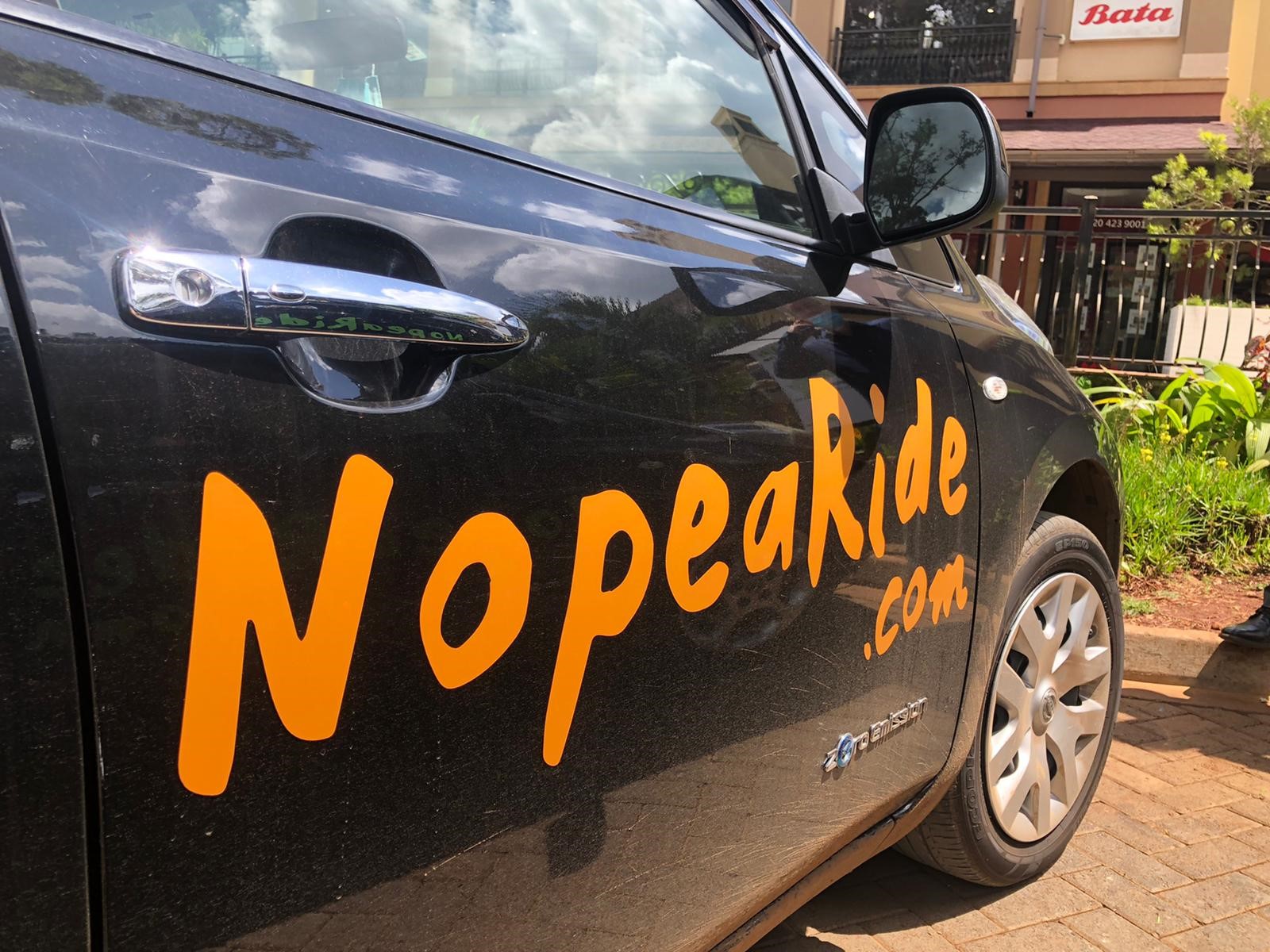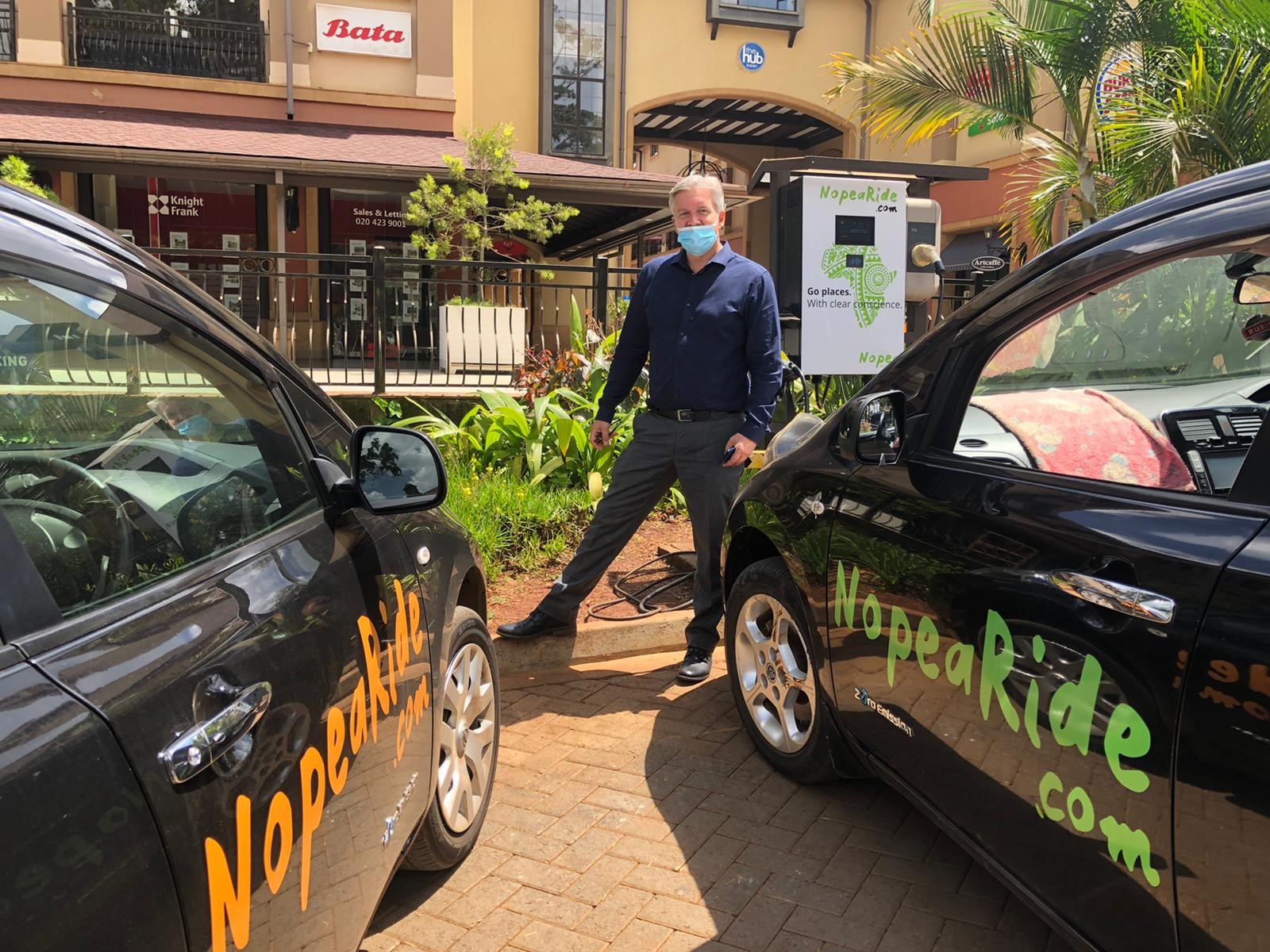Nopea Ride has brought a form of clean transport to Nairobi and wants to mainstream electric transport in Kenya
Nopea Ride is the first electric taxi company on the African continent and is growing its fleet in Nairobi. The concept of Nopea Ride is beneficial for both the drivers of Nopea cars as well as the environment and could be one solution to the pollution problem of many African cities.
Solar powered cars are a natural way forward on the equator, where there is certainly no shortage of sun light. This is one of the things Juha Suojanen, the CEO of Finnish Ekorent, under which Nopea Ride operates, considered when he decided to expand his business abroad from Helsinki. Megatrends are what lead him to start his business specifically in Nairobi: growing urbanization and the need for clean energy. Big cities need efficient transport solutions, especially cities, that lack public transport. The more sunshine, the better. Nairobi filled the boxes, being a city where taxi hailing companies are already popular.
In 2017 Juha first visited Kenya with thoughts about Nopea Ride in mind. In negotiations with the Finnish Embassy, the UN and other actors, he learned that indeed electric taxis are a concept that could work in Nairobi. Shortly after, in 2018 he started to bring in used electric cars with Nissan from Japan.

The concept of Nopea Ride is rather brilliant, creating obvious benefits for the environment but also for the drivers. Driving a Nopea car is more beneficial for the drivers than driving a fuel car, mostly since charging the electric car is free for the drivers. A big chunk of the profits of fuel car drivers in the taxi hailing business goes into fuel. With Nopea that whole expense disappears. In addition, this concept is obviously better for the environment, not only on a global scale, but in cities like Nairobi where cars are numerous and roads are full of traffic, electric cars have the potential to significantly improve air quality being zero-emission.
The journey hasn’t always been easy though. Expanding a business into a foreign country with cultural differences and different kinds of business practices can be overwhelming and not without its challenges. Importing equipment from yet again another foreign country can also bring about challenges. Challenging was when for some time the Kenyan government altered the VAT rates for imported electric vehicles, which was a bump in the road for Nopea Ride. Electric vehicles are such a new thing in Eastern Africa that no proper legislation or tax bureaucracy existed concerning them. Clear policies regarding electric vehicles is important, because it determines the attractiveness of the field for investments and thus determines the growth of the entire industry.

The Nopea Ride fleet is growing as we speak. At the moment there are fifty Nopea cars on the road in Nairobi, but the goal is to have a hundred by the end of the year 2021. Simultaneously more drivers are being trained and new charging stations in different parts of the city are planned. Currently there are five charging stations in Nairobi, scattered around the city.
Now Ekorent is also planning on building a Nopea Solar Hub, which would create its own solar energy, making the process cheaper and more efficient. This also serves as a platform to create a larger scale roll-out of electric vehicles in the area, since the charging stations could be used by any electric vehicles, not just the Nopea cars. This is one of the first steps in creating a country or even a region-wide network of solar charging stations.
Juha Suojanen is already looking to the future and planning on possible expanding his electric fleet elsewhere, whether inside Kenya or somewhere else in the region is still not decided. “It could also be that we expand to some areas with two or three wheeled vehicles instead of four wheeled like in Nairobi. Depending on the market”, Juha explains.

